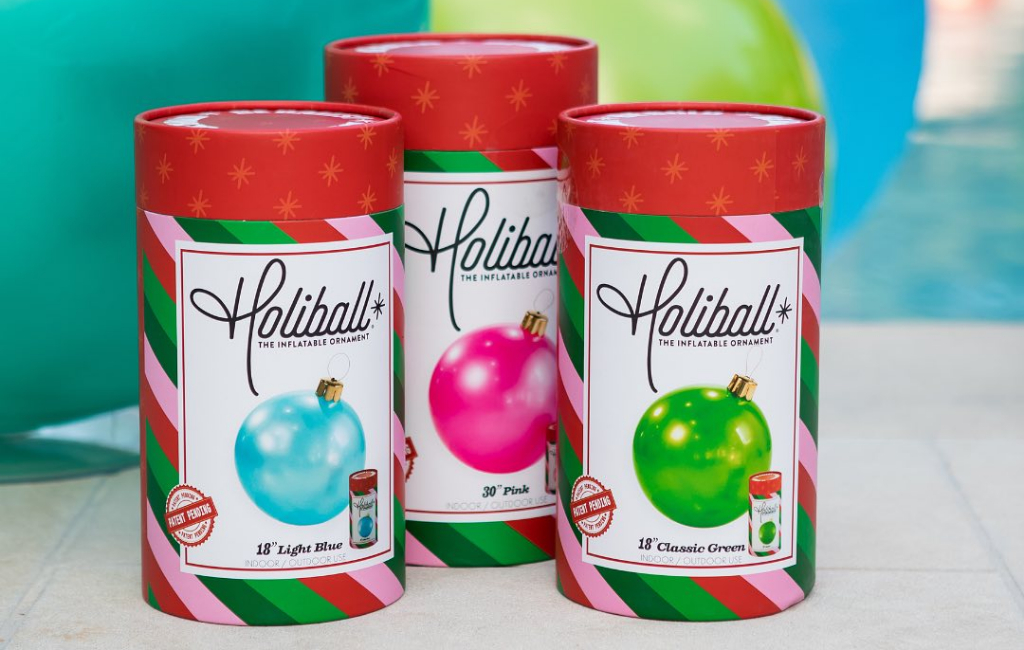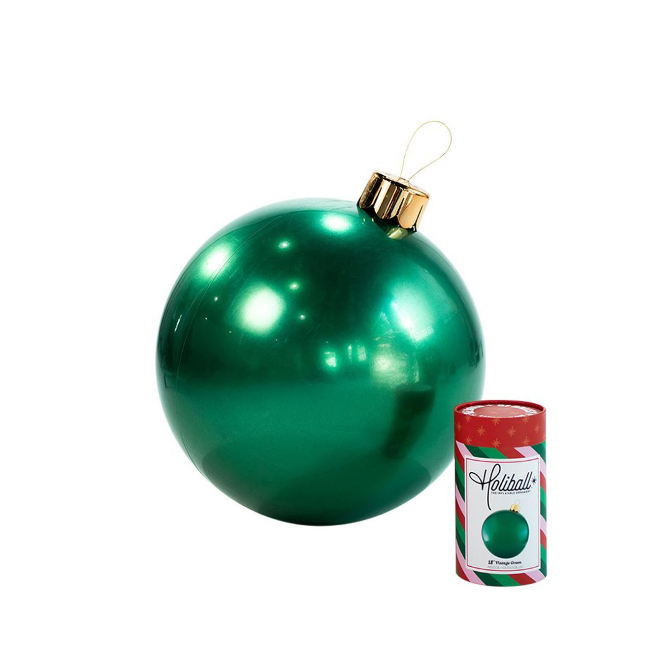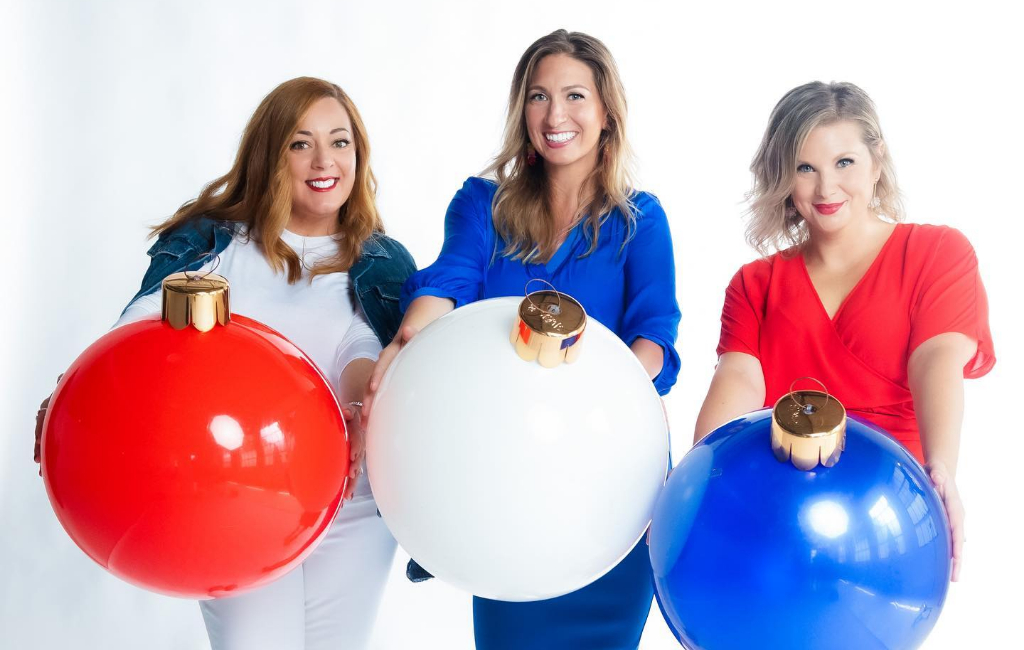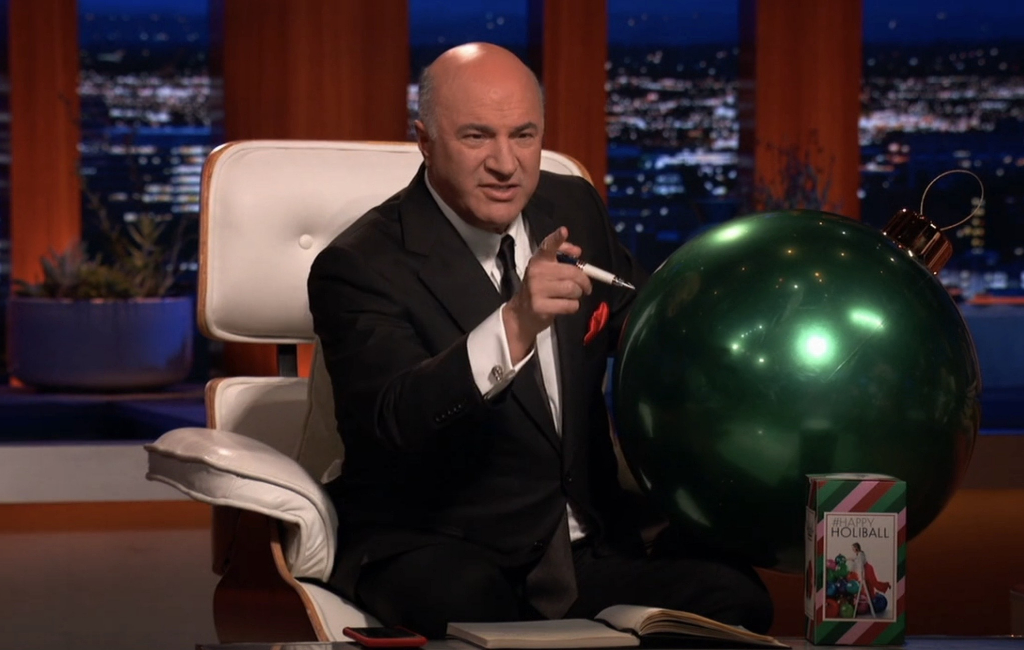The Holiball Giant Inflatable Holiday Ornament


DEAL
EPISODE SUMMARY
🕓 Air Date: December 4, 2020
Asking For:
$150,000 for 10%
Investor:
Mark Cuban, Barbara Corcoran (50/50)
Deal:
$150,000 for 20%
PRODUCT SUMMARY
Holiball is an inflatable and reusable holiday ornament designed for easy decoration, storage, and durability.
WATCH HERE
IN A RUSH?
Click these to jump to the section you want to read.
Background Story
Holiball is founded by three cousins from Houston, Texas – Amberly, Jennifer, and Kristy. They shared a passion for elaborate holiday decorations and wanted to bring commercial-quality decor to homes without the high costs and storage challenges associated with traditional decorations. They began researching materials and designs, leading them to create the inflatable and reusable Holiball.

In less than 120 days, they developed their ornament, ready to sell. The three cousins had a background in creative party planning and decorating, which inspired their venture into holiday decor. They recognized a gap in the market for affordable, durable, and easy-to-store holiday decorations and decided to fill it with Holiball.

The Product
Holiball is an inflatable holiday ornament made from all-weather, UV-resistant material. It can be easily hung, staked, sat on, or even floated, offering versatile decoration options.
The ornament comes in two sizes, 18-inch and 30-inch diameters, and is available in various colors. It can be inflated using a household air compressor or their recommended Fast Flow Inflator, which takes less than 30 seconds.
One of its standout features is how easy it is to deflate and store. Users can simply pop the top, pull the plug, and within 30 seconds, it’s deflated and ready to be stored in a small space, like a shoebox.

How It Went
The company’s position before Shark Tank
At the time of their appearance on “Shark Tank,” Holiball had achieved remarkable sales figures, totaling $171,000 since their launch on November 1st the previous year. They projected substantial growth, aiming for $650,000 in sales for the upcoming year, with anticipated profits of $300,000. The company had initially concentrated on the wholesale market, constituting 70% of their business.

However, the challenges posed by COVID-19 prompted a digital pivot. They focused on website optimization and SEO to expand their online presence.Their primary challenge lay in inventory management, necessitating the Sharks’ assistance to scale their inventory and streamline production and distribution processes.Holiball’s founders entered the Tank with a valuation of $1.5 million, which was based on the uniqueness and market success of their product.
The Negotiations:
The Holiball entrepreneurs entered the “Shark Tank” seeking $150,000 for a 10% equity stake. The first offer came from Daymond and Lori, who proposed $150,000 for a 25% stake, exceeding the entrepreneurs’ intended equity share. Barbara and Mark followed with an offer of $150,000 for a 20% stake, which included a condition that the entrepreneurs accept immediately and not entertain other offers.

This condition caused some tension as Daymond expressed frustration and withdrew his offer. Despite Barbara’s insistence on her immediate acceptance clause, the entrepreneurs decided to explore other offers. Mark Cuban seized the opportunity to pitch his offer again, matching Barbara’s equity stake of 20% but with a higher percentage of the company.

After careful consideration, the entrepreneurs accepted Barbara and Mark’s offer of $150,000 for a 20% equity stake, valuing Barbara’s early belief in their product and Mark’s business expertise as essential factors in their decision-making process. The negotiations ultimately showcased the entrepreneurs’ confidence in their product and their strategic decision-making aligned with their business goals.







